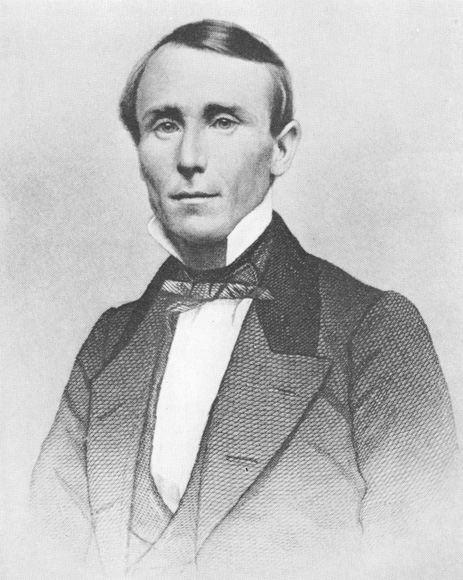America's Dark Past Intrudes on Bolivian Elections
The thinking that motivated the United States throughout its history is alive and well today, which is why, according to this op-ed article from Bolivia's Bol Press, political candidates that align themselves with the United States are suspect, and those that favor the policies of Hugo Chavez can reap electoral rewards.
By Andres Soliz Rada
Translated By Richard Hauenstein
December 14, 2005
Original
Article (Spanish) 
"Only fools speak of
establishing permanent relations, without the use of force, between the pure
American race, such as exists in the United
States, and the half-breed Hispano-Indian
race, such as is found in Mexico
and Central America."
 William Walker, American 'Pirate'
William Walker, American 'Pirate'
William
Walker, "Autobiography," 1855, Quoted
in "Guide to the Third World," Editorial Bodoni, Mexico,
1979. Pg. 315
In
election campaigns the world over, there are exaggerations and falsehoods.
Nonetheless, it was simply too much when Hernán Terrazas, representative of the presidential campaign of
Jorge Quiroga, indicated to Juan Ramón Quintana,
delegate of Evo Morales [another candidate], that the
latter supported the "Venezuelan Imperialism" of Hugo Chávez, in response to criticism that Quiroga favored the policies of the United
States.
The quote
by the North American pirate [William Walker] cited at the beginning of this
article, anticipates
the difference
between countries that are oppressors and oppressed, established by classical Marxism since Lenin, and characterized by the
draining of economic resources that more-or-less all colonies
and semi-colonies have suffered from the imperialists, including during invasions
and territorial mutilations. (Walker, with the support of Washington, was proclaimed president of Nicaragua in 1856 in order to spread slavery, which was at the point of being abolished in his own country).


 Jorge Quiroga; Evo Morales; Samuel Doria Medina; Main Bolivian Presidential Contenders
Jorge Quiroga; Evo Morales; Samuel Doria Medina; Main Bolivian Presidential Contenders
[Editor's
Note: President of Lower California, Emperor of Nicaragua, doctor, lawyer,
writer - these were some of the titles claimed by William Walker, the
American "filibuster." In the mid-nineteenth century, adventurers known as
"filibusters" participated in military actions to annex Latin
American nations for the United States - an expression of
Manifest Destiny, the idea that the U.S. was destined to control the continent.
Had he been successful, he might have brought several Central American
countries into the United States as
pro-southern states, altering the balance in Congress and postponing The Civil
War [READ MORE].
In particular,
Carlos Montenegro, in his book "Foreign Investment in Latin America,"
lays bare the brutality with which the U.S. annexed half of Mexico and divided
Colombia to create the Republic of Panama, the landing of the Marines in
Central America, the overwhelming force with which the CIA toppled Jacobo Arbenz in Guatemala, or
the slaughters perpetrated by the United Fruit Co. in the "banana
republics" which were disobedient to the North American colossus.
 Supporters of Indigenous Leader and Evo Morales Rally on Wednesday.
Supporters of Indigenous Leader and Evo Morales Rally on Wednesday.
The above
is not merely history. It is also going on today. Not so many years have
passed since the bombardment of Panama,
the invasions of Granada or the Dominican
Republic, the imposition of inhuman
dictatorships in the region, or the genocides in Iraq
or Afghanistan,
not to mention the unnecessary atomic bombings of Hiroshima
and Nagasaki, the U.S.
prisons in Baghdad or Guantánamo, or the actual CIA torture centers in Eastern
Europe.
Venezuela,
on the other hand, is one more of the balkanized provinces of the Great
Fatherland. It suffered all the consequences of that disintegration, from the
suction of the oil companies and "mono-production," recorded by
Sergio Almaraz in his "Petroleum in Bolivia."
Near the end of the 19th century and the beginning of the 20th
century, Venezuela
suffered bombardment of its ports by English, German and Italian ships because
it didn't pay its foreign debt.
All attempts
by the semi-colonies to stop such humiliation have been reviled by the
metropolitans [supporters if the colonial powers] and their internal agents. Perón [Argentina] was branded a fascist, Villaroel [Bolivia] a Nazi, and the NRM as Communist, as
was the government of General Alfredo Ovando y
Marcelo Quiroga Santa Cruz
[Bolivia] for nationalizing their petroleum industry.
No matter
what defects one may wish to find in the Venezuelan president, Hugo Chávez is one of the leaders of national liberation in Latin
America, above all for seeking to bring together the state
enterprises of South America and Central
America. This is intolerable to the European and North American
transnational producers of "black gold."
 America's Operation Just Cause, Panama, 1989
America's Operation Just Cause, Panama, 1989
In
day-to-day politics, the national visions of Venezuela
and Bolivia do
not always coincide, and even less if they are seen to be governed by the heirs
to the politics of [Bolivian President] Gonzalo Sánchez
de Lozada.
[Editor's Note: He is credited for "shock therapy" (with Jeffrey Sachs) - the extreme measures taken by Bolivia in 1985 to cut down on rampant hyperinflation caused by excessive government spending. READ MORE]
Of course
it pleased us that Chávez supported the maritime
interests of Bolivia,
and we didn't share his support of José Miguel Insulza
for the post of Secretary General of the OAS. We would have preferred that he
continue to buy Bolivian soybeans and not those from the United
States. We could wish for him to break up the
energy cartel that seeks to extract Bolivian natural gas.
Nevertheless,
one of the political essentials for Chávez is that he
must look for ways to stop the attempts by the CIA to overthrow or assassinate
him, and another is to use subtle means by which to distinguish his regime from
the real "imperialists" - like those presided over by Bush, Cheney,
or by Tony Blair.